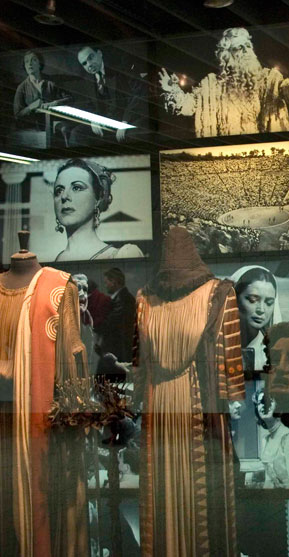Academic Events
Logos & Art
Chairs: Professor Gregory Nagy, Francis Jones Professor of Classical Greek Literature, Harvard University and Professor Richard Martin, Antony and Isabelle Raubitschek Professor of Classics, Stanford University
Main Speakers: Anton Bierl, Leslie Brubaker, Edith Hall, Christian Jacob, David Konstan, Marina Lambraki-Plaka, François-Bernard Mâche, Richard Martin (co-chair), Platon Mavromoustakos, Margaret Mullet
What lies behind the remarkable strength and continuity of Hellenic culture? In the closely linked fields of visual and verbal art, there are recurrent elements traceable over nearly three millennia in which one can locate both the vigor of expression and deep capacity for tradition-based innovation so characteristic of Greek civilization. This panel on logos kai tekhne (Discourse and Art) seeks to bring together experts from a wide variety of disciplines in order to examine the abiding, vital forces that continue to propel a precious cultural heritage.
The earliest recorded Greek literature, poetic verses scratched on vases in the 8th century BCE, foreground the dual themes of competition and the charm of performance as central. “Whoever now of the dancers sports most winningly has this (jug)” says a verse on the so-called Dipylon vase (now in the National Archaeological Museum in Athens). And three lines inscribed on a pot from the important archaic Greek island colony of Pithekoussai (now Ischia), off southern Italy, say “Nestor’s cup is good to drink from, but whoever drinks from this will be seized by desire for beautiful crowned Aphrodite”, an artful contrast between aristocratic drinking-parties and their protocols on the one hand, and the heroic traditions about the Heroic Age king of Pylos, on the other.
In subsequent Greek performance traditions, these two themes are tightly interlaced. Competition and the drive to be most attractive structure the diverse products of literary artistry, dramatic exhibition, court-room oratory, music playing and singing, display of philosophical or medical skills, athletics, or even the carrying out of public ritual in the sight of the gods (and so as to charm them). This quintessentially Greek focus on the competitive, or agonistic, aspect of culture explains to a large extent why Hellenic cultural forms innovated so rapidly and with such profuse variety. The words said to have been given to the hero Achilles by his father (according to Homeric poetry)- “always excel” (aein aristeuin)-came to mark for Greeks of all periods not just an heroic warrior imperative but a general approach to life in its many modes of public self-presentation.
This particular panel in the Athens Dialogues focused contributions on the attractive performances produced by competing Greek artists, of all sorts, in a number of eras, even into the 21st century. Athens, appropriately enough, was our focus, while we also represented the point of view of Byzantium, in many ways the new Athens of the middle ages. Contributions focused on the Athenian festival of the Panathenaia (and on the related pan-Ionian festival of the Delia); on mythology as it plays out in musical performance; on the distinctive features of the dramatic competitions of Athenian state theater; on Greek vase-painting; and on the modern reception of Greek literature, among other topics. In sum, we wanted to highlight as much as possible the ongoing, unique features of Greek art and discourse, and thereby offer for debate and analysis their real and potential connections with contemporary civilization.









